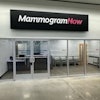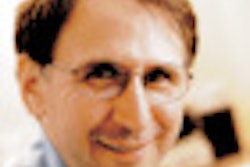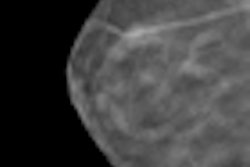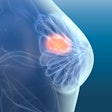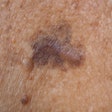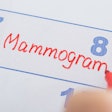Preventive mammography rates in women in their 40s have dropped nearly 6% since the U.S. Preventive Services Task Force (USPSTF) recommended against routine mammograms for women in this age group, according to a study presented this week at the AcademyHealth annual research meeting in Orlando, FL.
Researchers from the Mayo Clinic in Rochester, MN, said that while the change may appear small, it represents a significant decrease since the guidelines were released in 2009.
"These findings underscore the need for further research on delineating benefits and risks of screening mammography as it is difficult for patients and providers to decide how to proceed with numerous sources of contradictory information," wrote lead study author Dr. Amy Wang, from the division of general internal medicine, and colleagues.
The group searched a database of more than 100 health plans to calculate the number of screening mammograms performed between January 2006 and December 2010. Wang and colleagues then compared screening rates before and after the task force released its recommendation.
More than 7.9 million women ages 40 to 64 years were included in the analysis. Women older than age 64 were excluded because the database used does not include Medicare claims and therefore would not accurately represent utilization among that age group.
The researchers found that prior to the USPSTF guidelines, the baseline monthly mammography rate was 40.9 per 1,000 women in the 40 to 49 age group. The rate was 47.4 per 1,000 women for the 50 to 64 age group.
Based on projections from preintervention trends, there was a 5.7% decrease in the mammography rate at three months after the guideline change for women ages 40 to 49, the authors concluded.
"This effect lessened to a 4.97% ... decrease in the mammography rate at 10 months postintervention," Wang and colleagues wrote. "The intervention had no effect on the mammography rate in the 50 to 64 age group. This translates to an estimated 53,969 fewer mammograms performed in the 12-month period following the guideline change for women ages 40 to 49."
The Mayo Clinic continues to recommend annual screening mammography beginning at age 40, matching the standards from societies such as the American Cancer Society and the American College of Radiology.
Mayo's strategy consists of the following:
- Breast health awareness, which includes a woman becoming familiar with her breasts to identify breast abnormalities or changes and to inform her doctor of any changes that may need further evaluation
- A clinical breast exam performed by a healthcare provider and recommended annually beginning at age 40
- Screening mammography beginning at age 40
"Screening mammography is not a perfect exam, but it is the best available tool to detect cancer early," said Dr. Sandhya Pruthi, a consultant in Mayo Clinic's Breast Clinic, in a statement about the study. "Early detection can lead to better options and possibly less-aggressive treatments."
